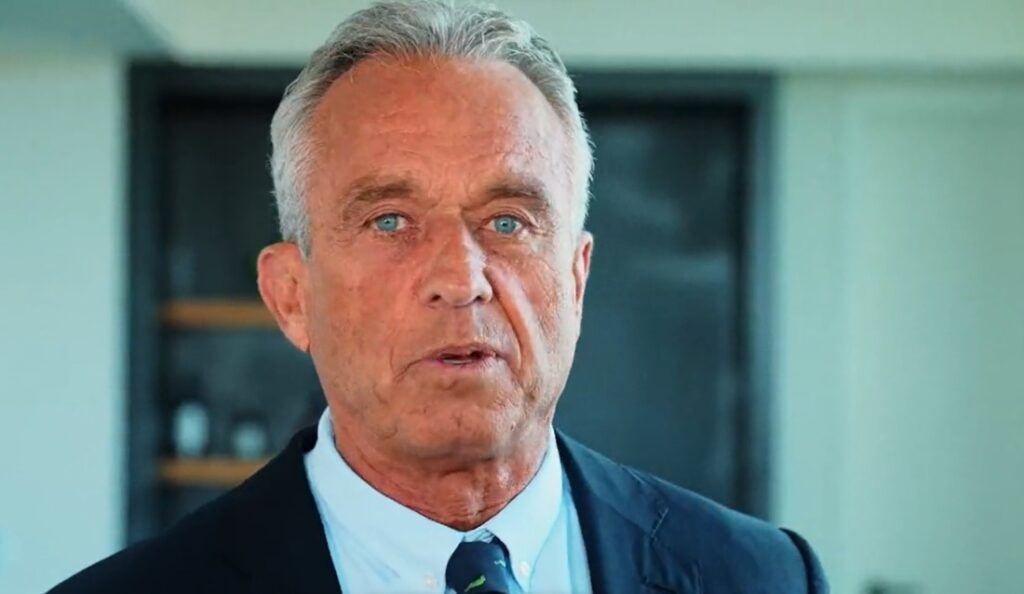President-elect Donald Trump’s nomination of Robert F. Kennedy Jr. to lead the Department of Health and Human Services (HHS) is reportedly causing concern among pharmaceutical companies due to Kennedy’s previous advocacy for banning pharmaceutical advertising. If confirmed by the Senate as HHS secretary, Kennedy could leverage the nation’s public health agencies to advance his Make America Healthy Again (MAHA) initiatives.
The prospect has led one pharmaceutical industry analyst to speculate that Kennedy might pursue a ban on direct-to-consumer (DTC) drug advertising. However, such a move would likely face strong legal challenges from drugmakers on First Amendment grounds and could encounter resistance from Trump and Republican lawmakers, who have so far refrained from publicly addressing Kennedy’s proposal, the Daily Caller reported.
“One of the things I’m going to advise Donald Trump to do in order to correct the chronic disease epidemic is to ban pharmaceutical advertising on TV,” Kennedy said to thunderous applause during a Tucker Carlson Live Tour event in Glendale, Arizona, on Oct. 31. “There’s only two countries in the world that allow pharmaceutical advertising on the airwaves. One of them is New Zealand and the other is us and we have the highest disease rate, and we buy more drugs and they’re more expensive than anywhere in the world.”
Let’s get President Trump back in the White House and me to DC so we can ban pharmaceutical advertising. pic.twitter.com/Qp7fj9xskU
— Robert F. Kennedy Jr (@RobertKennedyJr) November 3, 2024
Direct-to-consumer (DTC) pharmaceutical advertising spending in the United States surged to over $7 billion in 2023, with ad expenditures on weight loss and diabetes drugs exceeding $1 billion for the first time, according to an analysis by ad industry source MediaRadar. “Whilst we have a relatively benign view of RFK’s impact on the Pharma industry, one thing that does worry us is the potential for the U.S. government to ban DTC advertising of drugs,” United Kingdom-based research firm Intron Health wrote in a report excerpted by FiercePharma, a pharmaceutical industry-focused news outlet. “We see this as the biggest imminent threat from RFK and the new Trump administration.”
Kennedy Jr. could have significant sway over the second Trump administration’s policies on pharmaceutical advertising, as the Food and Drug Administration (FDA), the primary regulator of pharmaceutical ads, operates under the Department of Health and Human Services (HHS), the Caller noted. The Biden administration’s FDA implemented updated guidelines on May 20, requiring direct-to-consumer (DTC) ads to present information about side effects and medication risks in a “clear, conspicuous, and neutral manner.” In a September 5 op-ed in The Wall Street Journal, Kennedy called for a review of these guidelines.
During his presidential campaign and as a surrogate for Trump, Kennedy asserted that media outlets receiving significant advertising revenue from pharmaceutical companies cannot report on Big Pharma with impartiality. “The primary purpose of pharmaceutical advertising is not to influence consumers, but rather the television networks and news itself,” according to a statement on Kennedy’s website. “It gives Big Pharma the power to dictate what goes on the news — and what doesn’t — because the networks won’t bite the hand that feeds them. Every other country in the world recognizes that pharma ads represent a threat to the public good,” Kennedy’s website also noted.



